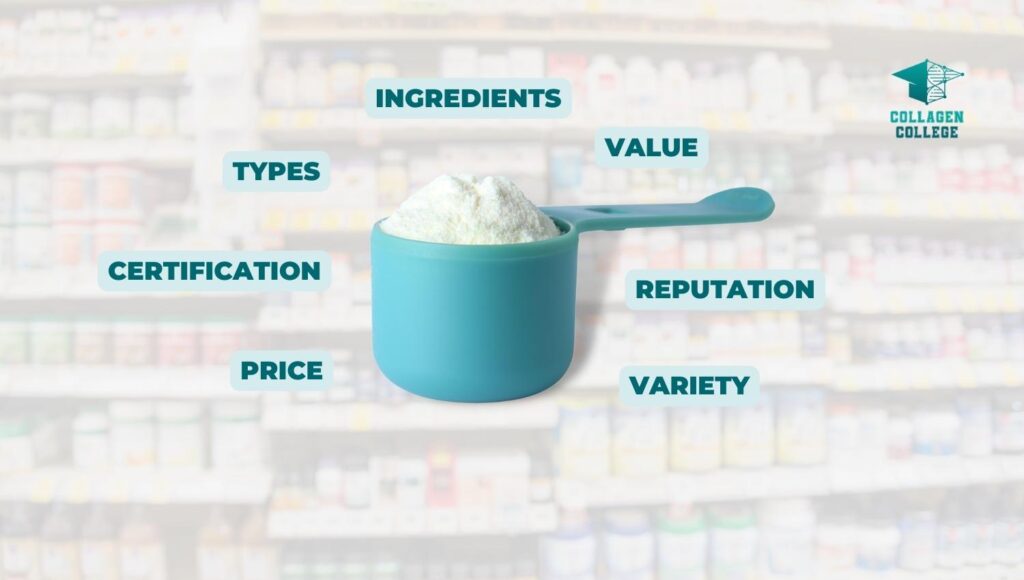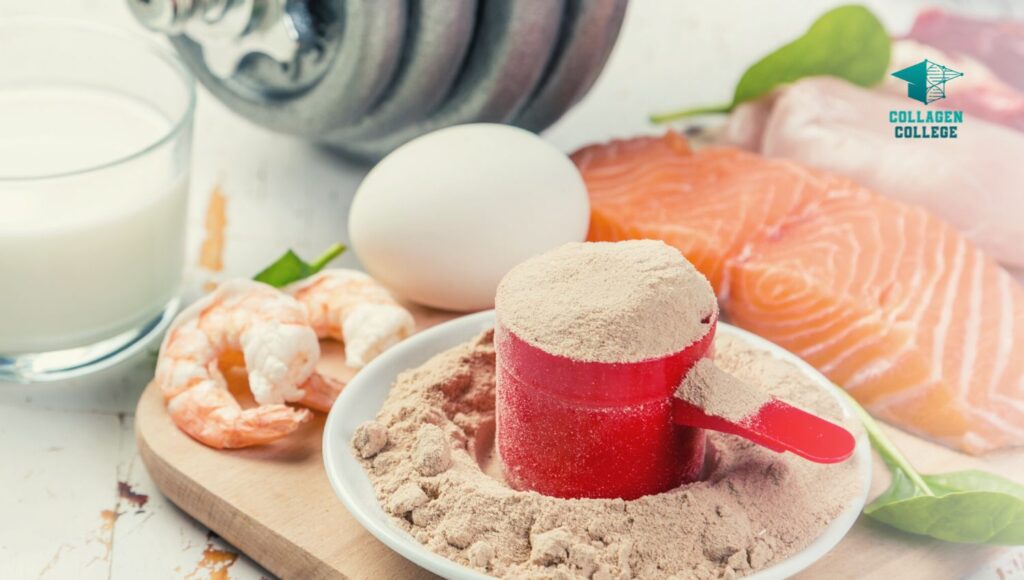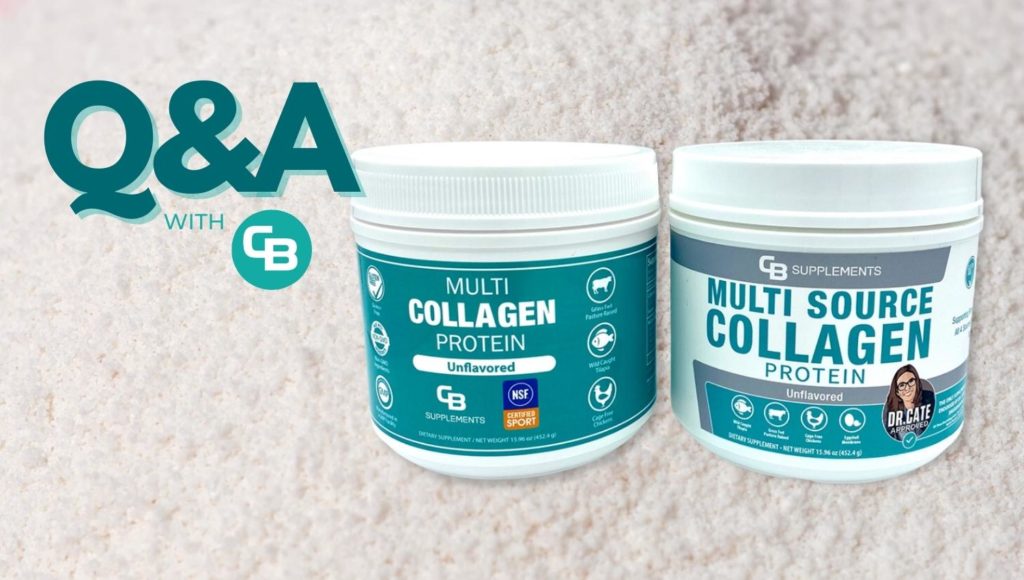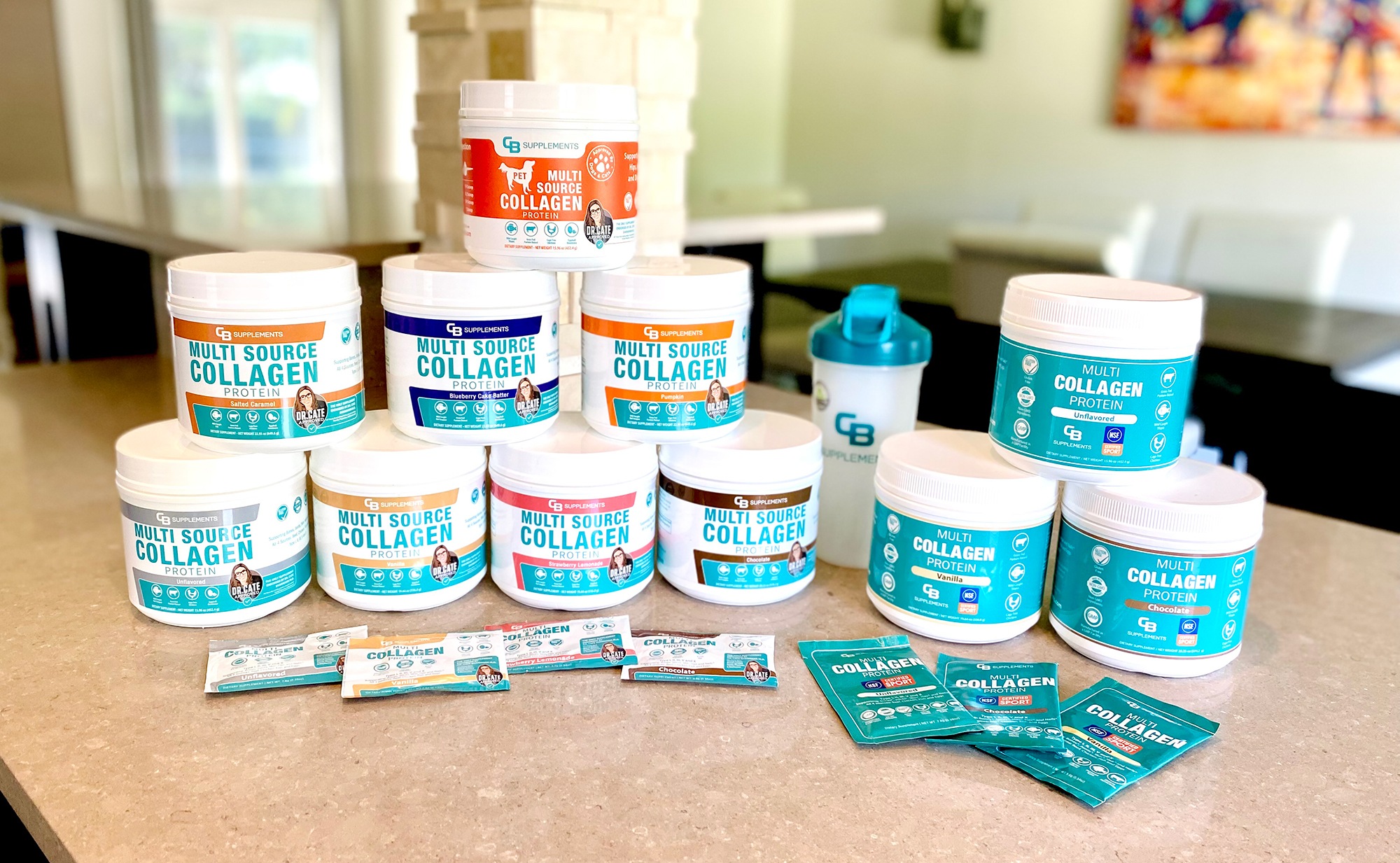You’ve probably already heard the good news about collagen supplementation.
However, you’re now curious how taking collagen impacts your day-to-day — in particular with the daily supplements you already take such as a multivitamin, vitamin D, magnesium, vitamin c, fish oil, or others.
Basically, can these two supplements (collagen and other vitamins) live in harmony? If you take together, do they decrease the effectiveness of either? Since 86% of Americans (4 out of 5 adults) take at least one dietary supplement, this is a common question and we’re glad you’re here.
Both collagen and vitamins help your body grow, repair, function, and work the way it should. Let’s start with touching on the essential vitamins we all need.
13 Essential Vitamins
There are 13 essential vitamins, per NIA:
- A
- C
- D
- E
- K, and the B vitamins:
- thiamine
- riboflavin
- niacin
- pantothenic acid
- biotin
- B6
- B12
- folate
As you know already, dietary guidelines suggest that we can get enough of these vitamins from food. But, we all know today’s fast-paced world can lead us to supplementation. Hey, no judgment here, we love collagen powder — check out our multi collagen supplement store!
Most Popular Vitamins
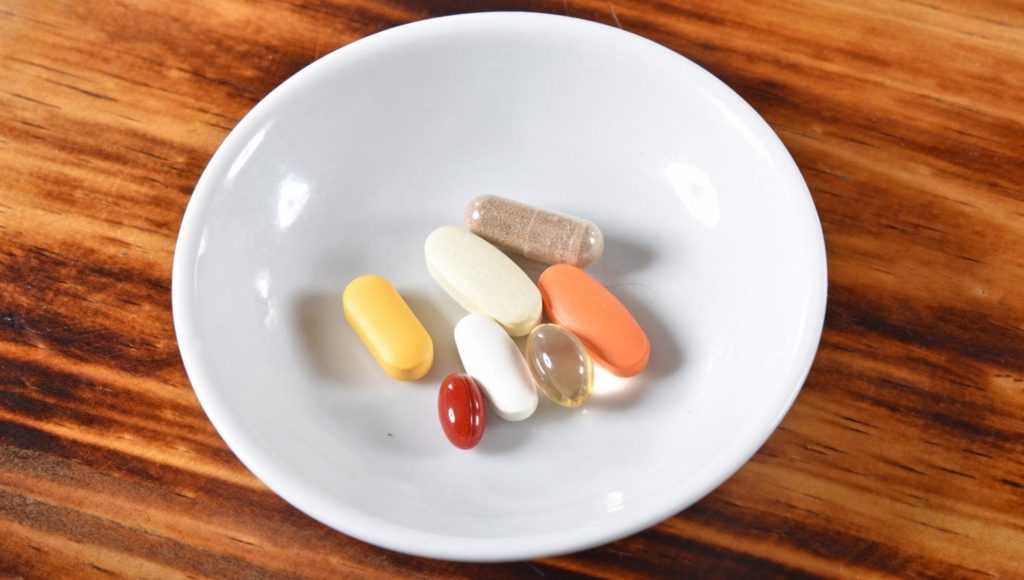
Of the above 13 essential vitamins, which ones are most popular? Focusing on the most supplemented vitamins will help us better understand taking collagen with vitamins.
Per HealthLine, here are the 7 vitamins and minerals needed in a multivitamin:
- Vitamin D
- Magnesium
- Calcium
- Zinc
- Iron
- Folate
- B-12
These are also popular vitamins and minerals that you may already be taking too:
- Fish oil
- CoQ10
- Probiotics
- Curcumin/turmeric
- Vitamin C
- B-complex
Let’s now bring collagen into the equation!
3 years of benefits!
"Been using this multi collagen for 3 years and continue to experience positive benefits!"
- Michael (Winter Park, FL)
✔
Purity Tested
✔
M.D. Approved
✔
Delicious Flavors
Can you take collagen with other vitamins?
We know this is the reason you’re here. Can you take a collagen supplement together with vitamins? Could there be issues? Are there safety concerns?
You can take collagen with other vitamins because collagen is food, most medical advice recommends taking vitamins with food already, and there’s no evidence showing it’s unsafe.
Let’s explore these 3 reasons further.
1. Collagen is food
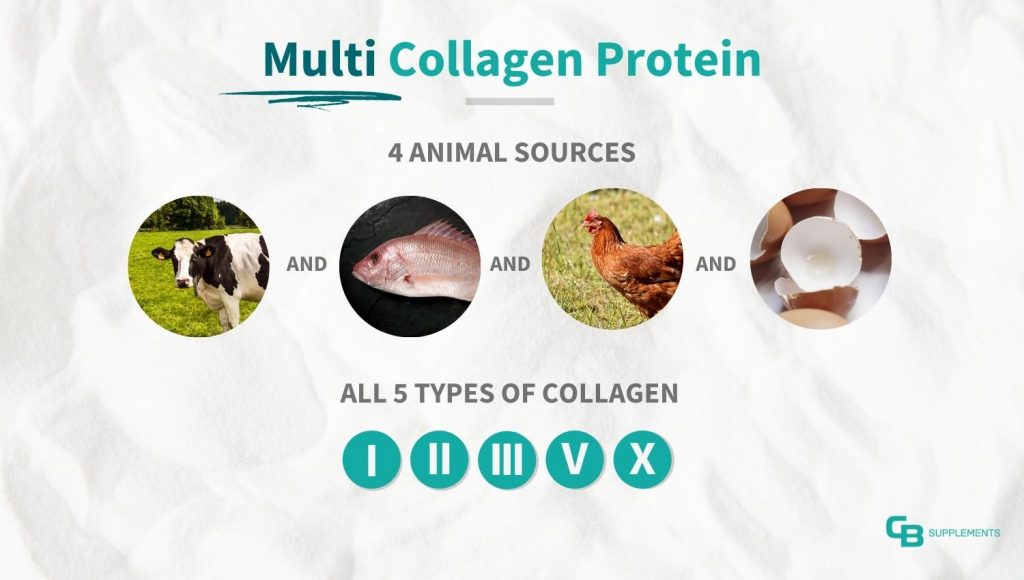
Did you know collagen is food?
That’s right. Collagen comes from animals and our collagen peptides are made by collagen extracted animal sources. Because vitamins and minerals are best absorbed when taken with food, and our collagen is food, you can take your daily collagen supplement — such as powder or pills (see collagen powder vs pills) — with vitamins.
2. Already Recommended to take most Vitamins with food
Last time we checked, many vitamins — including a multivitamin — even recommend taking with food for better absorption and increased digestion. So if collagen is food, claiming it’s safe to take with vitamins is a reasonable conclusion to make here. Even collagen and probiotics work well together, even though probiotics contain living organisms — there’s zero interference with the health benefits of each when taken together.
3. Evidence
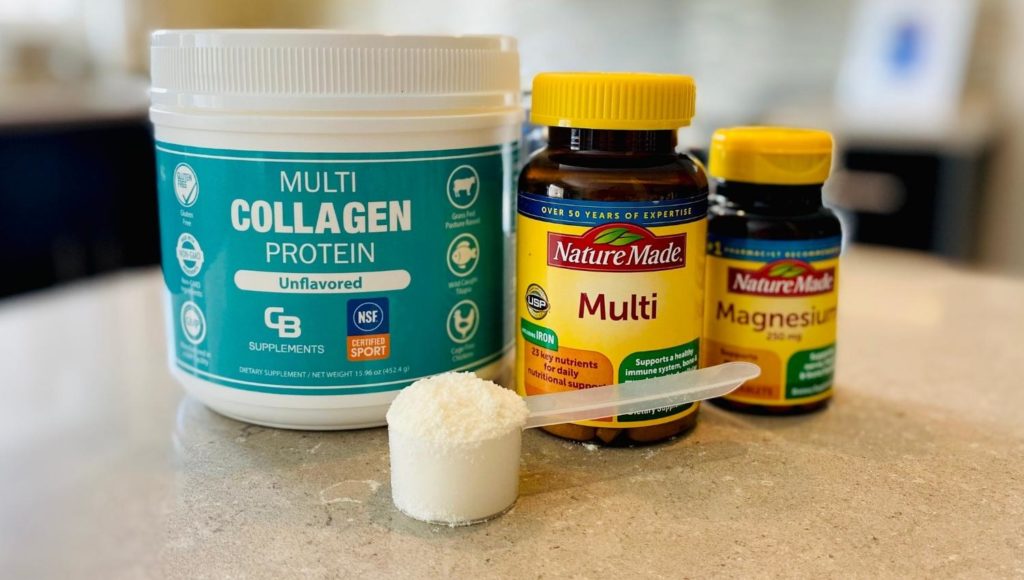
There’s no recorded evidence proving that taking collagen and vitamins together has a negative impact or creates health concerns.
Tips for taking Collagen with Vitamins
Here are 3 tips when adding a collagen supplement to your vitamin routine:
- Take your vitamins with your biggest meal of the day.
- There is not a best time to take collagen. Take a scoop of powder with that biggest meal of the day, with your morning coffee, or in the evening with your hot tea — there are many ways to eat or drink collagen powder.
- If you prefer collagen pills, simply pop ’em with the rest of your vitamins. Simple.
Beware of poor collagen supplements with extra stuff
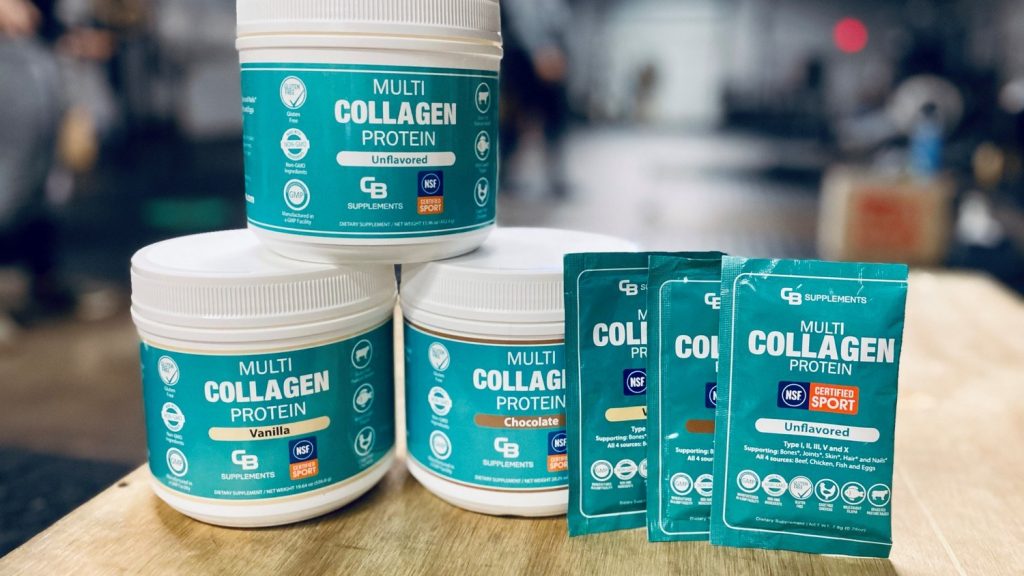
But, what if the collagen supplement is, um, bad? Hey, we’re not offended. We’ve seen the cold hard facts of supplements, in particular, this study that found 97% of 776 supplements had “unauthorized pharmaceutical ingredients”. Eek. Maybe this collagen supplement + vitamins isn’t so simple not knowing what else could be in that collagen that’d impact your vitamin intake too.
Vitamins & Minerals added to Collagen
Now that we know it’s safe to drop a scoop of collagen in your coffee and sip with your daily multivitamin, let’s pivot here and talk more about collagen supplements that add in synthetic vitamins.
If you shop collagen supplements long enough, you’ll find some brands that add vitamins and minerals to their collagen powder. The common vitamins and minerals we’re seeing added to collagen products these days are:
- Magnesium
- Calcium
- Prebiotics
- Keratin
- Vitamin C (more about Vitamin C and collagen)
- Ginger
- Blue Spirulin
- Biotin
- and probably more to come!
Woah. What a list. I’m sure we’ll see marshmallows and candy sprinkles soon.

We don’t believe in adding vitamins and/or minerals to our collagen powder
As a quick disclaimer, we choose not to add additional vitamins and minerals.
Our multi collagen protein powders are just collagen — with the slight exception of our flavored collagen since they add natural sweeteners. We made this decision not because vitamins and minerals don’t place nicely with collagen once they’re consumed (as we’ve learned above), but because vitamins and minerals synthetically manufactured into a collagen powder could lead to harmful oxidation of its amino acids.
The more you add to a collagen supplement, the more uncontrolled chemical reactions can reduce the bioavailability of all nutrients involved. Vitamins that have antioxidant effect can also act as pro oxidants, and these pro oxidants can oxidize collagen’s amino acids. In other words, taking high amounts of vitamin C with collagen might be counter productive.
— Dr. Cate, M.D.
If this could degrade the collagen, why do some collagen brands do this?
Why brands add Vitamins and Minerals to their Collagen
In theory, it sounds like it’s a legit thing. Make collagen more awesome with added vitamins and minerals? Um, sure, why not! But wait, hold up. Is this a marketing ploy or a real nutrition thing to consider before buying collagen?
Some products claim that vitamins and minerals, such as vitamin C, magnesium and calcium, are needed in a collagen for absorption and maximum effectiveness. Why would they make such a claim?
Two reasons:
- Product line extension
- They’re making assumptions
Reason #1: PRODUCT LINE EXTENSION

How many times have you seen this on the label of a supplement? Too many times to count, right? This tactic has a fancy name and it’s called product line extension. It’s what many supplement companies (and product companies) do to create additional revenue. Big collagen brands utilizing product line extension are very interested in boosting profits. There, we said it.
Reason #2: THEY’RE MAKING ASSUMPTIONS
Maybe they don’t know any better? Maybe these supplement companies actually believe that adding vitamins and minerals to their collagen complex is backed by sound science and nutrition? (Hey, not everyone can have Dr. Cate, M.D. supporting their brand).
There is no research to support the idea that adding minerals to collagen aids in any way with the absorption or utilization of the nutrients in collagen. What we need is healthy gut flora and intestinal cells by avoiding seed oils.
Hands down, the fastest way to improve the health of your gut flora and all your intestinal cells is to avoid seed oils and limit your intake of refined flours and sugars.
— Dr. Cate, M.D.
That’s why we like to keep our multi collagen protein simple and free of highly reactive minerals and additional additives.
Takeaway
Taking collagen in any form (powder, pills, gummies, etc.) with your daily vitamins is safe. Collagen supplements come from animals, and collagen is food.
To further alleviate concerns with adding a collagen supplement to your vitamin regime, stick with a product that doesn’t add synthetic vitamins. Most collagen pills with be free of additives, but many collagen powders will add various vitamins and minerals which could be harmful to the efficacy of collagen’s amino acids.





